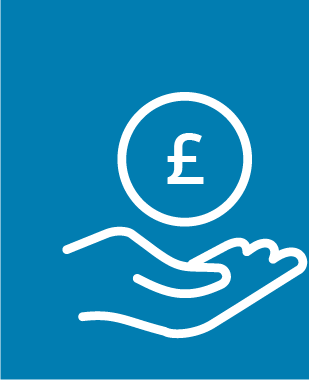You don’t need to give any reason for returning the items or withdrawing from the agreement; you can cancel even if there’s nothing wrong with the goods or service.
The cooling off period is usually 14 days from when you receive your goods or sign the agreement. However, some products will have a minimum period of 30 days and some providers may choose to offer a longer period.
After the cooling off period expires, you do not have the automatic right to cancel and, if you are allowed to cancel, you may not be entitled to a full refund and you may need to pay extra fees or charges.
Cooling off periods for goods
If you buy an item online, over the phone, or through a mail order, in most cases you should have a 14-day cooling off period. This only applies if you buy from a company, not from a private individual, and it doesn’t apply if you bought the item in-store.
The 14 days will begin once the item has been delivered.
You need to tell the company within this period that you want to cancel, and you’ll then have a further 14 days to return the item. The company should then give you a full refund, although you may need to pay the postage to return the item.
Exemptions
Some occasions when you may not be entitled to a cooling off period include:
- when you’ve bought anything that deteriorates quickly, such as flowers or perishable foods
- when you’ve ordered personalised or custom-made items
- if you’ve broken a seal on an item such as a DVD or game, or a hygiene seal on items such as make-up or swimwear.
Cooling off periods for services
If you arrange a service, such as a gym membership or an internet or mobile phone contract, or instruct a solicitor, for example, you should get a 14-day cooling off period that allows you to cancel.
As with goods, this only applies if you arranged the service online or from a distance, not if you made the agreement in-person.
If you made a deposit or paid for the service upfront, you should get a full refund if you cancel within the cooling off period. However, the company is entitled to keep any money it is owed to cover the costs of any services it provided before you cancelled.
What financial products and services have a cooling off period?
If you take out a financial product or service, in many cases you have the right to cancel it if you change your mind. There may be different rules depending on the product and how you applied for it but, in general, you will usually have at least a 14-day cooling off period from when you sign the agreement.
Credit agreements
You have the right to withdraw from any credit agreement within 14 days of signing it.
This applies for products such as credit cards, loans and finance agreements, including car finance.
After cancelling, you will have 30 days to return any money loaned.
Be aware that, if you purchased goods with finance (such as a car), ending the finance agreement may not necessarily mean you’re ending the contract to purchase the item. If you want to keep the item, you’ll need to find another way to pay for it.
Moreover, returning your car or other item to the company won’t necessarily end the finance agreement. Make sure you’re aware of what’s required if you change your mind about the item and want to cancel your agreement within the cooling off period.
Savings accounts
Different cancellation rules apply depending on the type of savings account you have.
Easy access: Easy access accounts should allow you to withdraw your funds and close your account without penalty at any point, not just within the first 14 days.
Fixed rate bonds: These don’t offer a cooling off period in law, but individual banks and building societies may offer it voluntarily. After this, some fixed bonds allow for early withdrawal on closure of the account, but this will often result in a penalty fee involving loss of interest. Some fixed rate bonds offer no access or closure until the fixed period has ended.
Notice accounts: Notice accounts should come with a 14-day cancellation right.
Cash ISAs: When you open a fixed or variable ISA, you will have a 14-day cooling off period when you can change your mind and close your ISA without penalty. This won’t affect your ISA allowance for that tax year.
Stocks & Shares ISAs: As with cash ISAs, you have 14 days to cancel your stocks & shares ISA. However, the provider may not refund any account fees and, if your investment has fallen in value, you won’t get back any losses.
Insurance policies
You have the right to change your mind after purchasing an insurance policy and receive a refund of any premiums you’ve paid. However, the cooling off period varies depending on the type of policy you’ve taken out, the term of the policy and how you purchased it.
Bear in mind that you may still be charged for some insurance products, even if you cancel during the cooling off period. For example, if you were insured for a number of days or made a claim on the policy before you asked to cancel it, providers can keep some of the money to cover the relevant costs.
The minimum 14-day cooling off period applies for most types of policy, including car, home and pet insurance. Breakdown cover policies also offer a 14-day cooling off period.
Travel insurance
You get a standard 14-day cooling off period if you buy an annual travel insurance policy. However, you won’t get any cancellation protection if you buy cover for a single trip or if the policy will be running for less than a month.
Life insurance (including critical illness cover)
For all forms of life insurance, critical illness cover, income protection and payment protection insurance, you have a 30-day cancellation period. However, this doesn’t apply if any policies can be cashed in. You also may not get a cooling off period if the term is for less than six months or you buy it face-to-face from a broker.
Current accounts
There is a 14-day cancellation right for new current accounts. However, if you have run up any debt associated with that account (such as an overdraft) then this must be repaid in full before closure.
If you’re switching banks using the Current Account Switch Service, you have the right to cancel up to seven working days prior to the switch date. After this you must wait for the switch to complete before cancelling your new bank or current account.
Mortgages
There is no official cooling off period for mortgages. Bearing in mind it can take many weeks from signing an agreement to its completion, you can choose to cancel at any time before the final transfer of funds. However, if any other parties have incurred costs, such as administrative fees, you may be asked to repay these. You also won’t get back any associated fees you’ve already paid (such as legal or valuation costs).
If you have exchanged contracts on a property purchase, you are legally obliged to continue.
Equity release
As with mortgages, equity release products aren’t required to offer a cooling off period by law. However, individual equity release companies may offer these voluntarily. In addition, it often takes many weeks from signing an agreement to the release of funds, so you can cancel if you have second thoughts. Once again, there may be administrative fees or charges associated with this so be careful to check your agreement carefully before signing.
Pensions and annuities
You’ll typically be able to “opt out” of any pension scheme within 30 days, and any contributions made should be refunded. In the case of annuities, you’ll again get a 30-day cancellation period, provided the annuity isn’t already in payment.
How to cancel a financial product
You’ll normally need to cancel a financial product in writing – perhaps by email, letter or to a specific web address given by the provider. Sometimes you may be able to cancel verbally, if the provider allows this, but it may still be worth getting something in writing so you have evidence to fall back on if there are discrepancies at a later date.
Once the provider has received notification that you wish to cancel, you should receive any refunds within 30 days. Bear in mind that the provider may deduct some money to cover administration costs or the cost of any services you received before cancelling.
If you cancel a credit agreement, for example, you will also have 30 days to return any money you received from the provider.
When does the right to cancel not apply?
In some situations, you don’t get a cooling off period and you won’t have a right to cancel. This includes:
- Services where you’ve already fully benefited within the 14-day timeframe.
- Some insurance policies if bought face-to-face through a broker or if the term is for less than six months, such as a single trip travel insurance policy.
- Where the price of a service is variable and dictated by market fluctuations that are outside of the provider’s control.
There are also some more specific products and services (as set out in the Financial Services Regulations) that don’t offer a right to cancel, but the majority do. Before taking out a financial service or product, it’s always worth checking what your rights are if you change your mind.
What to do if you are outside your cooling off period
If you’re outside your cancellation period, you have no automatic right to cancel, and you may be locked in for the duration of the contract. That said, some providers may still allow you to walk away, although they’ll be within their rights to charge cancellation fees, and you may not get your money back.
It’s worth speaking to your provider to see what your options are if you want to cancel.




